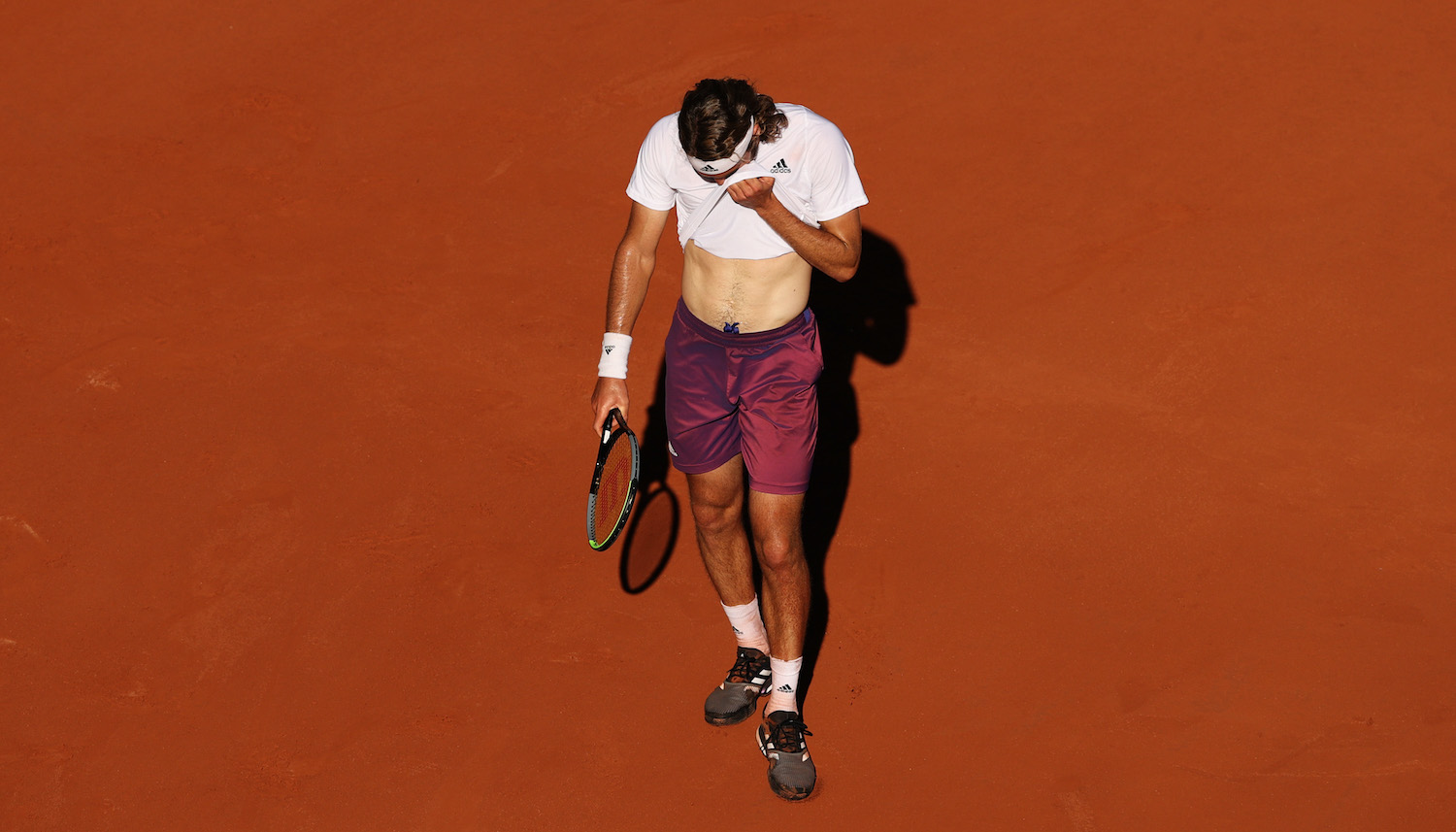The metaphors present in the French Open Final were far too on-the-nose. After dropping two sets to 22-year-old YouTuber Stefanos "Greek God" Tsitsipas, Novak Djokovic swapped out his white shirt for a red one and instantly began drawing blood as the Parisian sun dipped below the horizon and began casting dark shadows onto the red clay. One of the most mechanistic athletes I've ever watched compete in any sport appeared to decide to flip a switch before the third set, after which the outcome of the match was never really in doubt. Tsitsipas sweated and winced and groaned for another two hours and even sniped a few winners down the line, but nothing he could do was ever close to enough to turning his fate. Robot kills god.
If this sounds like good theater, well, I assure you it was not, even though the match script looks perhaps more dramatic than the Djokovic-Nadal semifinal. That all-timer was a mutual spilling of guts, one that anyone with a body could appreciate for its quality and physical strain. The final, on the other hand, was simply one thing and then it was another. Djokovic found himself just a bit behind Tsitsipas for two sets, and then he asserted dominance. Tsitsipas got to see the mountaintop for the first time in his career only to be placed on a sled and pushed back down the slope. Here is what that looked like on the court, and also what I felt like watching it:
Tsitsipas fans right now.🙄#RolandGarros pic.twitter.com/QGVcJPXg7s
— Tennis Channel (@TennisChannel) June 13, 2021
A comeback is probably the single most exciting outcome in sports, and also one of the most important facets that distinguishes sports from scripted entertainment. The point is that nobody ever knows what's going to happen. LeBron James going hero mode in the 2016 Finals and pinning Andre Iguodala's shit to the backboard will always be the coolest basketball thing of that decade because it was a surprise. Even if LeBron James was then and is now the greatest basketball player on the planet, he was facing down a superior team, and overcoming them took tapping into an unexpected reserve of willpower and stamina. You watch sports to see the unexpected.
That's why the Djokovic win today was such agonizing TV. Nobody slams the door shut as hard as he does, and though Tsitsipas technically still had his chances to win just one of three sets, the last three-fifths of the match felt like formality. It didn't really feel like a comeback, since Djokovic was so clearly the better player. He lasered every return and never once seemed to lose his balance, while Tsitsipas flailed and squirmed into desperate positions to smack returns right into Djokovic's breadbasket. Things went like this for two hours, and the stakes made everything feel worse. Djokovic let Tsitsipas see glory before he activated and neutralized him. Tsitsipas tried hard, obviously, but he, like the audience, had to sit there and endure a process whose result felt inevitable. There was no chasedown block moment—just hours of suffocation.






